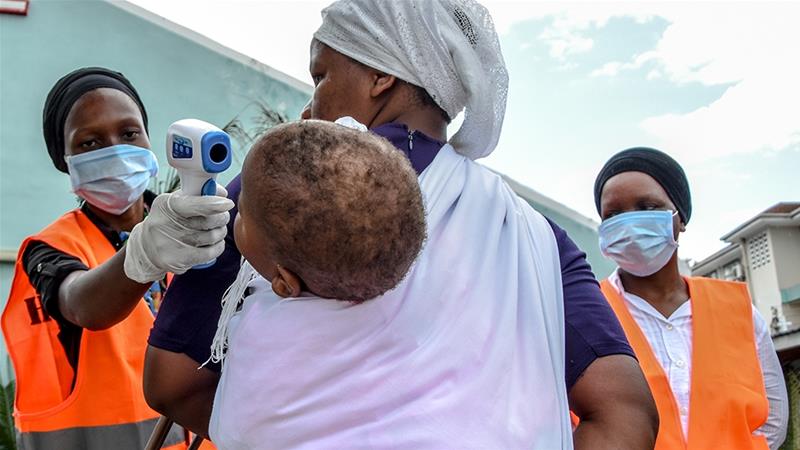by JACLYNN ASHLY

Suspicion over official COVID-19 numbers grows as critics accuse gov’t of of failing to inform public on true extent.
Omari*, a motorcycle taxi driver, stopped outside a house in Arusha City, a tourist hub in northern Tanzania and pointed to a large, grey gate.
“A person here died from COVID a few days ago,” he said, before starting up his engine again and continuing down the city’s pothole-riddled dirt roads.
He slowed down at another house and loudly mumbled through his blue protective mask: “The father here drives the bus between Arusha and Dar es Salaam. He picked up COVID in Dar and he died about a week ago.
“This is becoming very serious,” he added. “This disease is killing a lot of people.”
No one knows for sure if these claimed deaths are just rumoured to be the result of COVID-19, the disease caused by the new coronavirus that has so far infected more than four million people worldwide and killed almost 300,000, or if they are indeed coronavirus-related fatalities that have not been included in Tanzania’s official death toll.
According to government records, 509 people in Tanzania have so far contracted the virus and 21 have died. But the official numbers, which are provided in increasingly rare updates, are being regarded with great suspicion.
Several opposition leaders and activists in recent weeks have accused the government of failing to inform the public on the extent of the disease’s outbreak and covering up the true number of fatalities.
The government has denied the allegations but many Tanzanians also told Al Jazeera, in private and behind the safety of closed doors, that they did not trust the government’s data.
Videos purporting to show night burials in cemeteries and corpses wrapped in plastic body bags carried out of homes by men in full personal protective equipment (PPE) suits are shared widely on WhatsApp groups and social media, raising fears about the true extent of the crisis.
“The government is hiding the number of deaths, this is 100 percent proven. How many [they’re hiding] is more difficult to say,” Zitto Kabwe, the leader of the ACT-Wazalendo opposition party and a member of parliament, told Al Jazeera.
“The health system of the country is completely overwhelmed. The situation is not very good and the government has completely controlled the data so we haven’t been able to access independent information on what’s really going on.”
Government denial
Zakia Mshare was placed in a government quarantine centre for suspected COVID-19 patients in the Njiro suburb of Arusha when she fell ill after returning from a trip last month to the coastal city of Dar es Salaam.
A day after arriving at the facility, the 64 year old slipped into a coma and passed away two days later. Mshare was tested for COVID-19 but the family was told that the results were “inconclusive”. Still, officials said her body would be handled and buried by the government.
The family arrived at the Njiro cemetery at 10am (07:00 GMT) on April 27 and began digging the grave to prepare for Mshare’s remains. They waited there until 8:45pm (17:45 GMT) when her body, along with 14 others suspected or confirmed to have died from COVID-19, arrived in a government convoy, according to Nasri Mshare, the woman’s son.
“There were four government workers with PPE suits on who unloaded the bodies and put them in the graves one by one,” Nasri Mshare said, adding that he had seen a tag attached to his mother’s body which detailed her name and cause of death as “suspect”.
She was put into the grave with the body bag still wrapped around her. The family members were able to grab short videos and blurry photos before being told they were not permitted to take any footage.
Godbless Lema, MP of Arusha City constituency for Tanzania’s main opposition party Chadema, told Al Jazeera he had also witnessed night burials being conducted by the government at the Njiro cemetery. According to Lema, two bodies were buried there on April 13, one on April 14 and 13 more on April 18.
“So many people are dying [of COVID-19] in Dar es Salaam, Arusha, Dodoma and many other places in Tanzania,” Freeman Mbowe, the chairman of Chadema, told Al Jazeera.
Al Jazeera for more
